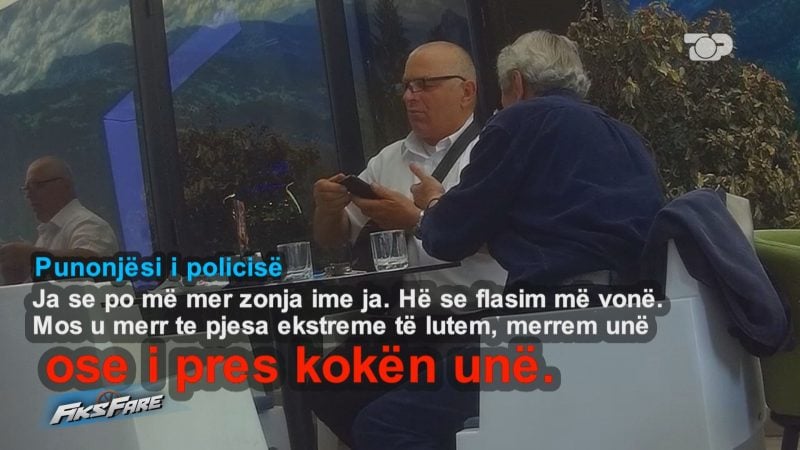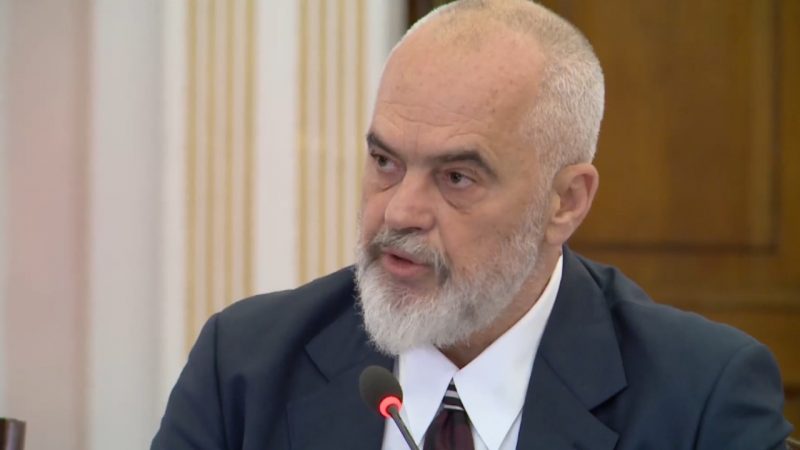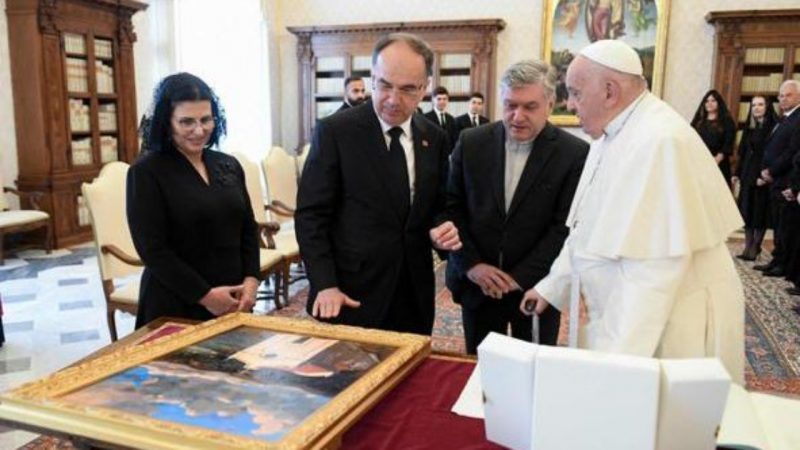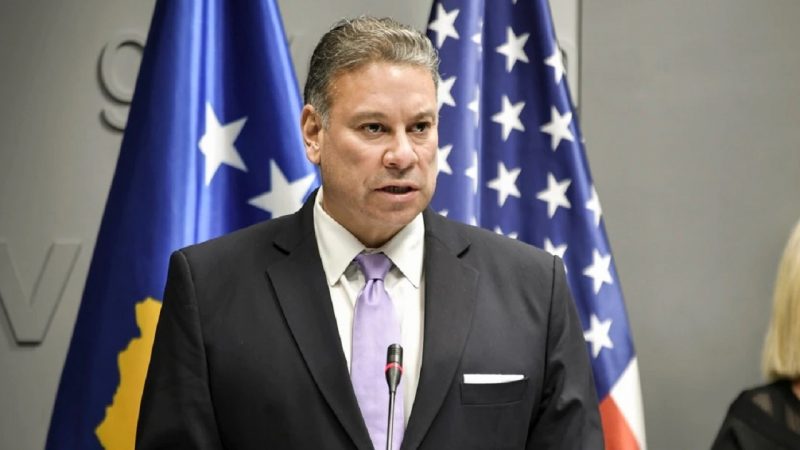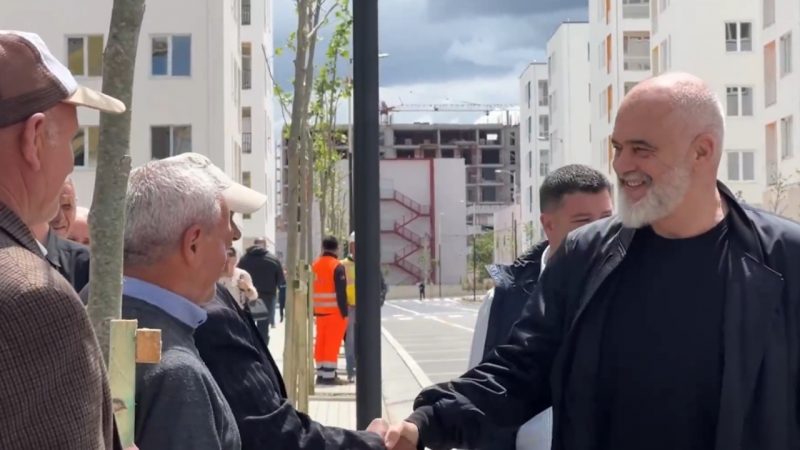 SP and the opposition DP approve list of witnesses for the commission of inquiry on tampering with the TIMS data system
SP and the opposition DP approve list of witnesses for the commission of inquiry on tampering with the TIMS data system
04/11/2015 00:00
James Hamilton, former Prosecutor General of Ireland for 11 years, was
one of the six rapporteurs at the Commission of Venice, who met with the
ones involved in the justice reform.
Before leaving Tirana, Hamilton said for Top Channel that Albania has a very ambitious project that treats the justice corruption problem
Mr. Hamilton what are your conclusions from the meetings you had in the past two days with actors involved in the justice reform in Albania?
Well, I think there seems to be a general agreement that there is a serious problem of corruption among judges and prosecutors, so I suppose that is the first conclusion I would draw.
Not absolutely everybody agrees with that but generally speaking people do, and we now have very ambitious law to deal with that problem, and I am not going to attempt to evaluate it here in an interview because this is our task, to take that back with us, to study, to reflect very carefully on everything we have heard, to prepare reports and to present them to the Venice Commission who will then adopt report themselves.
Do you think it was much easier for you to take in consideration only one proposal from the Ad Hoc commission rather than having 2 other proposals, one from the opposition and one from the party of Parliament Speaker Mr. Meta…. So you have three proposals on the table to take in consideration.
Well, i am not going to comment on the process involved, because our job is to evaluate texts. But the way Venice commission works, their job is to evaluate a proposal which is referred to them by governments or by governmental agencies or by the CoE bodies. So what we do is evaluate the proposal which is being put forward in the Parliament. And of course we look into any other ideas also, which are part of the process, but our job is to evaluate the actual proposal which is being put before the Parliament.
Can you explain to us a little bit what is going to be the process after your visit until the final report, the opinion.
Well the process I think will include a lot of reading texts, a lot of thinking about the various complications involved. I said this was a very ambitious project not only regarding the major amendments to the constitution, to establish a process, but all of this is done in the context of a major criminal justice reform which includes a large number of draft organic laws, so we have to see all of these in that context and as part of a really quite complex inter-locking web of reforms, so that’s not going to be an easy task to evaluate that. Our job is to look at this, and to see whether it complies with EU norms and standards, taking into account the actual conditions of Albania; but at the end of the day, of course, is only the Albanian people and their own democratic institutions which can make decisions about what is best for Albania. We don’t try to do that.
If we speak in terms of timescale, when do you think the VC will have the final opinion ready?
I wouldn’t like to predict that in fact, I am only one rapporteur in the process, I can write my report, but then things will move as quickly as they can. That is all I can promise you
Ok, Iam going to ask questions; if you don’t want to answer it is all up to you. We have this information from our sources that it is believed that you have not agreed with the formula proposed on how the High Council of Justice will be composed. Is that right?
We haven’t made any decision at this point, so you can’t say that we don’t agree with anything. There are four rapporteurs, who have to write their four individual reports, and then the secretaries will work on that. If we don’t agree with each other we will try to reach an agreement, and sometimes we don’t. But there will be one opinion of us and at the end there will be one VC opinion.
In Tirana, politicians and international community are insisting about the need of inclusiveness and consensus. In your opinion, what are the mechanisms to guarantee that for the justice reform.
Again, I think you are asking me to comment on the process, and that’s not our job. What we do is comment on legal texts and evaluate them as objectively as we can. The Process is really for Albanian society and its politicians and for all the other actors as well, to decide on. It is not really for me either to decide or to comment on it.
Do you think is going to be a difficult task about this process?
Quite difficult, yes because of the wide ranging nature, because some elements are not exactly on precedents, there are very few precedents. There has been a number of other countries which have attempted to carry out a widespread assessment of judges and prosecutors with the view of getting rid of the corruption in the system, I can mention for instance, Ukraine that is undergoing such a process, which the VC advised on, and there have other countries attempted such process with not so much success, so its a difficult process, that is all I can say.
From your experience, as a general prosecutor for 11 years in Ireland, how can we build a justice sector in Albania, which is not corrupted?
I think that corruption is a very difficult to root out once it becomes established. In Ireland we had a tradition, there was almost no corruption among judges and prosecutors; it is very, very rare. And when you have a tradition like that, it is much easier to maintain it. Here, I think you have to give the maximum independence to the judicial system, to depoliticize as much as possible. But you have to recognize that even with all of that – and you have to for example pay to judges and prosecutors reasonable salaries, which is very important – but even after that you will still have bad apples, so you have to have effective systems to police what is happening, to examine the assets of judges and prosecutors and indeed any other person alleged be corrupt, to look at unexplained wealth, and generally to make sure that you investigate complaints thoroughly, to ensure that there will be consequences for people found corrupt and that they are not simply tolerated within the system.
If everything is going ok, do you think that one day Albania will get rid from the corruption in the justice system?
Albania, i think could have a very bright future if it could get rid of this problem, which is holding the country back. I think everyone agrees to that. This is a country which has the right to developing and being strong economically, but unfortunately the corruption is sucking money out of the system; it is preventing investors from coming here, because they don’t trust the justice system. So it is absolutely vital for every citizen of Albania that justice reform succeeds and that corruption is rooted out. That is why I think, the VC regards this as an extremely important task, and I hope we will be able to help the system in Albania to deal with this problem.
And my last question, do you think that the justice reform is the right medicine to heal the justice system from corruption.
I have no doubt you need a justice reform, but our task of whether saying this is the right way to do it, is exactly what we have to go back now, and look after presenting the report, so I am not going to prejudge that.
Mr. Hamilton thank you very much for your time, it was a pleasure interviewing you.
Top Channel
 SP and the opposition DP approve list of witnesses for the commission of inquiry on tampering with the TIMS data system
SP and the opposition DP approve list of witnesses for the commission of inquiry on tampering with the TIMS data system 08/05 15:48



